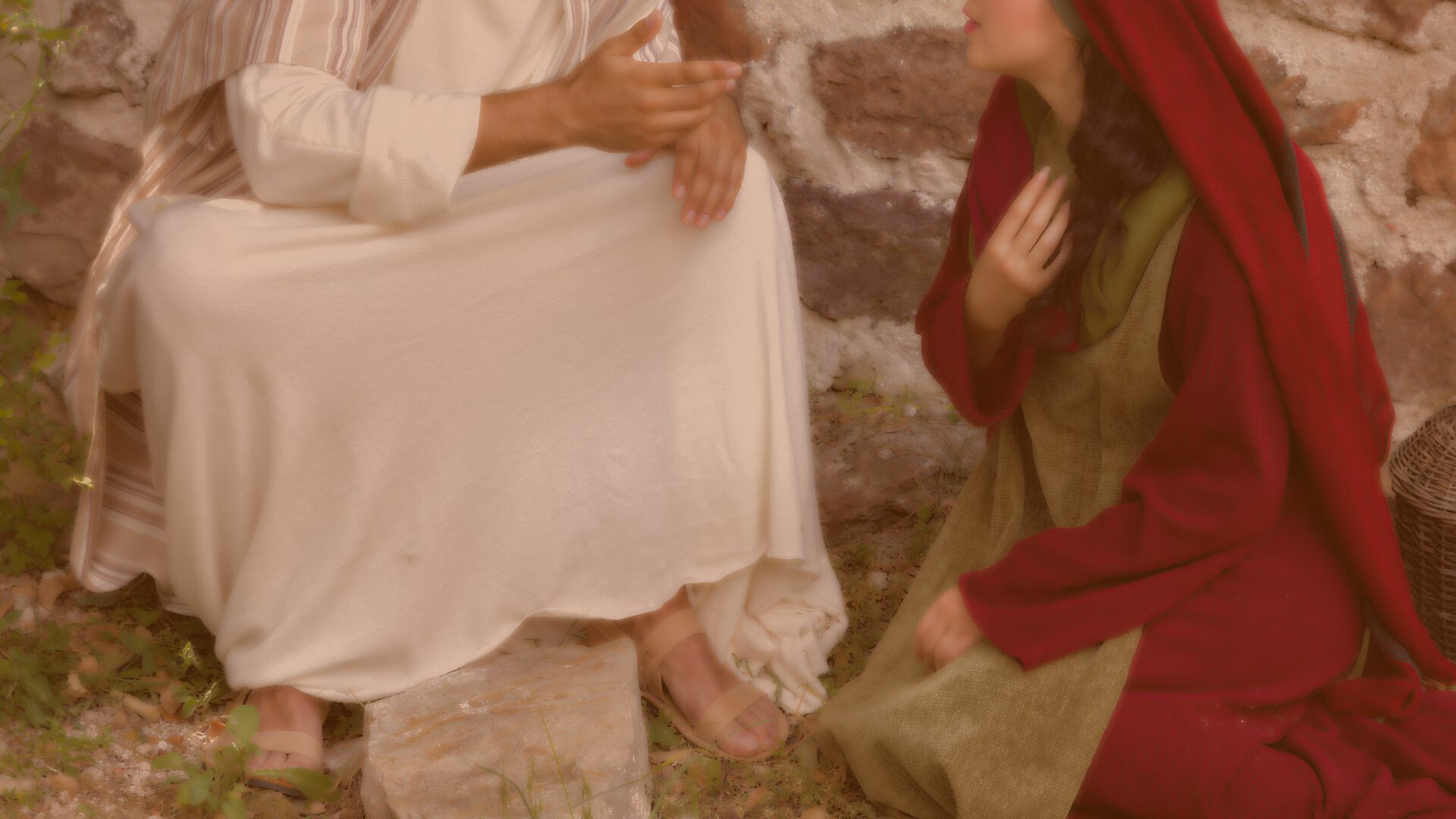Intentional Focus

Luke 10:38-42
I’ve just returned from two back-to-back continuing ed events: four days of silent retreat on my own at the Trappist abbey of Gethsemane in Kentucky, and four days at a national conference for church administration professionals in Ohama, Nebraska, with Kathy Whited, Director of Operations. The events could not have been more different. In the first event, I spent my days in solitude praying, reading, and hiking, taking time to notice things – tiny mushrooms, wildflowers, dewdrops glistening on leaves in the morning sun; taking time to simply BE in God’s presence.
And then the convention – 300 people in multiple workshops detailing the most effective and innovative ideas for running a church today. From HR and legal requirements to facility renovation and leveraging tax advantages in giving, these are the people who know how to make church work. This conference was all about DOing.
The contrasting continuing education events reflect an age-old tension between what is known as the active life and the contemplative life – life in the secular world and the religious life separated from society. The distinction between these two ways to live comes from the rise of monastic orders in the fourth century where people withdrew from society to live in religious communities focused on prayer. They believed that isolation from the world gave them an intimacy with God that was not possible in day-to-day living of regular people. Religious life was therefore thought to be the best way to love God and to live.
The story of Mary and Martha in our Gospel lesson today was often interpreted as an allegory in this debate, with Mary symbolizing a life of spiritual contemplation and Martha the life of active service. When Jesus said, “Mary has chosen the better part,” people interpreted that to mean that prayer and learning are better than serving.
But let’s take a closer look at Luke’s story about Mary and Martha. Mary, Martha, and their brother Lazarus lived in Bethany, outside Jerusalem. They were dear friends of Jesus. Bethany was the place to go when Jesus needed a break. Jesus had sent out 70 disciples to heal and proclaim God’s kingdom, and after many days on the road, they returned, joyful, but probably also tired. They stop in at the home of Mary and Martha.
Imagine the scene. Jesus traveled with a lot of people – it would have been a house full. There was no way to call ahead, so Jesus and his entourage were likely a surprise. Martha nonetheless welcomes them into her home and gets busy with the work of hosting – pulling up cushions and chairs, getting water for washing, providing drinks, preparing food.
Mary, however, is sitting at Jesus’ feet, a traditional posture for a disciple. She is soaking up everything Jesus is saying, leaving all the work to Martha. (Notice brother Lazarus isn’t even mentioned in this story – clearly the work of welcoming was women’s work.) That’s when Martha complains to Jesus: “Lord, do you not care that my sister has left me to all the work by myself? Tell her then to help me.”
I think we can all appreciate Martha’s sentiment. It’s like the Pareto rule, where 20% of the people do 80% of the work, and we don’t like being the 20% – especially when we are not appreciated for our efforts! Jesus seems to be reprimanding Martha, putting down her gift of hospitality, when he was the chief beneficiary. Not to mention that if everyone sat around with their heads in the clouds all day, nothing would ever get done.
“Martha, Martha, you are worried and distracted by many things.” It’s not the activity that Jesus objects to; he knows that hospitality is essential. You can’t separate loving God from loving people, and people come with needs. Meeting those needs is loving God.
What Jesus objects to is Martha’s distraction. Her frustration at Mary’s choice leads her to spin off course – she is no longer thinking of loving service to Jesus and her guests; she is not in a flow state of practical efficiency and care. She is thinking of how angry she is at Mary!
Jesus redirects Martha’ energy, saying, “Martha, Martha, you are worried and distracted by many things. One thing is necessary. Mary has chosen the better part, and it will not be taken away from her.” That one thing is being in Jesus’ presence. The better part Jesus was talking about was the awareness of that gift, of the holiness of the moment. Martha didn’t have to live in frustration and overwhelm. She could choose the better part, too.
The truth is, Martha didn’t have to give up doing in order to be aware. Sometimes being aware of God’s presence happens in the midst of activity, like making music with others, digging in the garden, preparing and serving a meal. The crucial thing Jesus was trying to communicate was intentionality, and that takes not retreat from your duties, but a simple pause to focus.
Martin Luther shook things up 500 years ago when he taught that God is actively present and working not just through religious professionals but through everyday activities and professions. He famously stated that even a maid milking a cow is serving God as much as a priest in the pulpit. For Luther, all work could be approached as a holy vocation from God, a way to be intentional about being in God’s presence, a way of loving God, neighbor and yourself.
Luther’s theology makes me think of a woman who worked in a department store. She decided that whenever she folded the sweaters on the display, she would pray – for the people at her job, for her family, for what she heard on the news that day, and for the people who would eventually purchase the sweaters. It transformed a mundane activity into a holy time with God, right in the midst of her day.
Jesus came to communicate that the Kingdom of God was at hand. He came to show that all of life is holy. So whether you are carting kids around or accomplishing your part of the project at work or mowing the lawn again, it’s all about how you approach the work, and the moment you take to notice God and dedicate your time and effort to God.
My continuing education events this past week reminded me of what the Marys and the Marthas of the world have in common. The chanting monks and the administrators geeking out about church management systems were both about Jesus. In their diverse callings, they serve and worship our Lord. All it takes is intentionality. No matter what we do, we can choose the better part of being with Jesus, and it won’t be taken away.




Login To Leave Comment